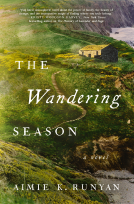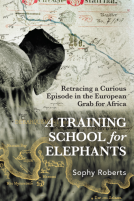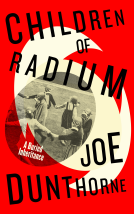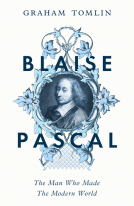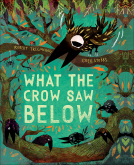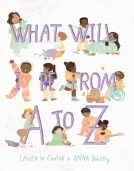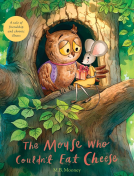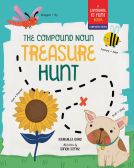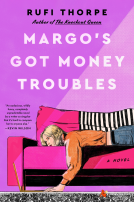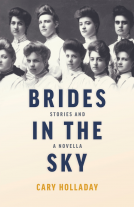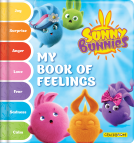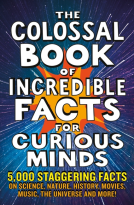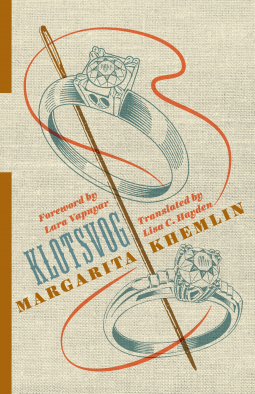
Klotsvog
by Margarita Khemlin
This title was previously available on NetGalley and is now archived.
Send NetGalley books directly to your Kindle or Kindle app
1
To read on a Kindle or Kindle app, please add kindle@netgalley.com as an approved email address to receive files in your Amazon account. Click here for step-by-step instructions.
2
Also find your Kindle email address within your Amazon account, and enter it here.
Pub Date Aug 27 2019 | Archive Date Nov 19 2019
Talking about this book? Use #RussianLibrary #NetGalley. More hashtag tips!
Description
In Klotsvog, Margarita Khemlin creates a first-person narrator who is both deeply self-absorbed and deeply compelling. From Maya’s perspective, Khemlin unfurls a retelling of the Soviet Jewish experience that integrates the historical and the personal into her protagonist’s vividly drawn inner and outer lives. Maya’s life story flows as a long monologue, told in unfussy language dense with Khemlin’s magnificently manipulated Soviet clichés and matter-of-fact descriptions of Soviet life. Born in a center of Jewish culture in Ukraine, she spent the war in evacuation in Kazakhstan. She has few friends but has had several husbands, and her relationships with her relatives are strained at best. The war looms over Klotsvog, and the trauma runs deep, as do the ambiguities and ambivalences of Jewish identity. Lisa Hayden’s masterful translation brings this gripping character study full of dark, sly humor and new perspectives on Jewish heritage and survival to an English-speaking audience.
Advance Praise
"Truly a masterpiece of Russian fiction."
—Brian Horowitz, Tulane University
"Truly a masterpiece of Russian fiction."
—Brian Horowitz, Tulane University
Available Editions
| EDITION | Other Format |
| ISBN | 9780231182379 |
| PRICE | $15.95 (USD) |
Featured Reviews
I enjoyed the book and really liked it. Waiting to hear more from the author. Thanks to the publisher and NetGalley for the arc.
 Rachel G, Reviewer
Rachel G, Reviewer
Thank you to the publishers for a free copy of the ARC of this book via NetGalley in exchange for an honest opinion.
Maya is surviving in the Soviet Union in the 1950s and 60s with only her mother and an aunt or uncle. The background of her war experiences sweep by almost in passing, as if almost irrelevant, as do references to the tenuous position of Jewish families at the time. The introductory note rightly points this out as a counter to Maya's personality.
We see Maya thrusting her way through life, desperate to be secure (financially and in the truth of her son's parentage remaining unknown), tearing through relationships without much thought for those she's using. I found her such an unpleasant and difficult character - it's clear she has experienced severe trauma but the pathologically selfish way she behaves is extremely difficult to read. An unreliable narrator to the core, we only see her effect on others through their actions or through what they accuse her of being (which she always denies). She constantly states her opinion 'as a pedagogue' despite having barely taught. Maya does seem to experience some growth by the end, but there is not really a sense of closure or hope.
The novel is written in a very staccato style, with the constant refrain of 'But that's not my point' (leading us to question what her point is), and Maya comes across as quite emotionless - if she ever experiences a feeling she tells us, 'This is when I experienced this feeling' rather than allowing us to sense it from her words or actions, which has a curiously distancing effect.
This is not a book I particularly enjoyed (the character of Maya just left such a bitter taste in my mouth) but I found it interesting and wrestled greatly with my feelings about its protagonist. I'm giving it 4 stars for now for this reason but may come back and change it when I've had more time to think about it!
Khemlin's fascinating character study may not sound truly exciting to a 21st century reader, however, the writing style not only holds the book together but also makes it special; the author's use of skaz techniques enable her to maintain Maya’s voice and wring so much life and emotion out of simple words.
 John L, Reviewer
John L, Reviewer
With this one volume, this very academic imprint of Soviet and Russian writing shrinks the average age of the original publications they translate – this is much more modern than their routine output. As a result, it needs a little context for the ignorant browser and average reader such as I – why is the author looking back over these years in particular, and in the first person voice of someone who would now be in her eighties? As it is we get a mildly interesting tale of a woman who can't get hold of and keep what she wants – her first partnership doesn't prove up to much, but gives her a baby who is born when a different man is under her sheets as husband – although it's a third chap who brings the child up. With both offspring she ends up with she has to fend off comments about anti-Semitism they've picked up at school, for whether the scene be Kiev or Moscow, the post-War and post-Stalin sentiment is still against the family, and with the welter of patronyms available to them the kids are unaware they're also Jewish.
As I say, context is needed here. Did our author have more intent than just presenting a very naive floozy, a woman who can't remain monogamous to any household, it seems? Is this seemingly unreliable narrator supposed to be amusing, or is this the straight tragedy the guest foreword here would imply? For from the text alone such things didn't really stand out as having firm answers. The woman isn't completely likeable, and her repeated latching on to men as help-meets was not the most edifying plot out. It has been well presented – there is no doubt the translation provides for a certain chatty narration in keeping with the original Russian vernacular, even if not the multi-lingual aspects of the characters. As far as readability goes, it can seem a little woolly and over-long at times, but flows reasonably well, and is certainly easy enough to be consumed by the man on the stereotypical public transport. At the same time, though, the woman narrator has a particular quirk for closing many, many paragraphs and scenes, which suggests a more literary emphasis. As, ultimately, does the very much open to discussion subject of the book. In the end, I think it struggles to win the general reader over – unsavoury people in unsavoury times, and all that, but it's not really dislikeable.
Maya Klotsvog is just doing what she needs to to get by, to get ahead, to have a moment to herself, to put a little aside against the hard times. She's living the Soviet Union, in Kiev, and her passport marks her as a Jew. She spent the war in exile in Kazakhstan and she's all too aware of the precariousness of life for those of Jewish descent in the Soviet Union. She also knows that she's going to have to do what is needed to get ahead.
As Maya narrates her own story, it's clear that she's massaging the details, of her first relationship, then her hasty marriage to her boss, a sad man who lost his entire family to the Nazis, then her second marriage, and the next relationship, meant to make things just a little easier. Maya is self-centered and manipulative, using her beauty to avoid working, or to improve her circumstances, but she uses her relentlessness in service to her family occasionally as well and I was left with the impression of having read about one of the few personality types that could improve their circumstances under an intolerable regime. Just because she left a trail of destroyed lives behind her is no reason not to root for Maya to finally get what she wants, at least until she sees something else.
Margarita Khemlin was a Jewish-Ukrainian novelist and short story writer whose work has not been widely available outside of the former Soviet Union. Columbia University Press has begun publishing untranslated works under the Russian Library imprint. This novel is both a fascinating character study and a stark look a what ordinary life looked like in the middle of the last century in the Soviet Union.
This was a raw look at life from the point of view of a young Jewish woman in the Ukraine in the post WWII 1950s and 1960s. I say "raw" because that's how it feels to read Maya's account of her life. She's beautiful and intelligent but she's also manipulative, conniving and controlling, and, I would say, somewhat cold. Is this her given personality or is she the product of her circumstances? I think when people have been forced to do and see unspeakable things to survive they are deeply and eternally affected and develop a lack of faith in humankind for the rest of their lives. I believe Maya only trusted herself and her own power to obtain a better life for herself and her children. What she didn't anticipate is that this cold ambition would alienate the ones she loved the most. I think this story resonates with mothers everywhere. Sometimes we push too hard, interfere too much and in general, push others away in our efforts to create something we think is "better".
"But that's not the point".
Thank you for NetGalley for the ARC
Well-told story of an elderly woman, Maya Klotsvog, remembering her life in the Soviet Union after World War II. Very moving and at times also hilariously funny. Maya is a character that will certainly stay with you for quite some time.
 Librarian 199509
Librarian 199509
The main character is a woman out to get the best from life. In her journey for that she tramples over her family, her lovers, her husbands, strangers, and her children. No one is safe. Throughout the story the reader gets little glimpses into her that she clearly doesn't really want the reader to get. I really enjoyed that aspect of the story. Some of the decisions she makes are understandable if unpleasant, however, her behavior towards his children is hard to read. She vacillates between being terribly overbearing to being very neglectful and in the end no one is left to stay by her.
 Kathleen C, Reviewer
Kathleen C, Reviewer
The spirit of human survival is often a theme is Russian literature. I rarely venture into Soviet fiction, but I recently read and loved Margarita Khemlin’s "Klotsvog," translated by Lisa C. Hayden. I admired the measured, moderate tone of the Jewish narrator, Maya Klotsvog, who at first seems like an ideal friend: indeed, everyone knows a Maya. But she exaggerates her achievements, claiming she is a retired mathematics teacher, though she taught only a few classes before dropping out to raise her children.
Perhaps it is the denial that keeps her going. She has a degree and certainly has the ability to teach. She says,
"I was born in 1930 and—like my whole generation—saw too much, things that weren’t pretty.
"Field of work: mathematics teacher. Retired, of course. But I don’t consider myself a former teacher. Like a lot of other professions, a teacher’s profession doesn’t exist in the past tense. Acknowledging that sustains me tremendously."
With much denial of the impact of anti-Semitism, the beautiful Maya, who attracts men and has multiple affairs and marriages, claims she had a happy childhood but reveals that her father died during the Battle of Dnieper. One of her greatest regrets: in the haste of evacuation during the German invasion, Maya and her mother left behind dresses made of the special fabric her father brought home after the Polish campaign. She hopes that their Jewish friends who refused to evacuate wore the dresses, but she knows that most were killed. She insists the women in her family were happy during the evacuation: they spent “the period of the Great Patriotic War in evacuation, in the vicinity of Atbasar Station in the Kazakh Soviet Socialist Republic.”
It is clear that Maya, who thinks herself so logical, needs desperately to feel. Everything is not fine, though she claims it is. Sex is her addiction. Unlike Anna Karenina, she can remarry without becoming a pariah. Maya is always in love with someone new, and always deceives herself that the latest lover is her soulmate.
Her first husband, Fima, who lost his family in the holocaust, marries her even though he knows she is pregnant by a married professor. He is willing to raise the child. Her second husband adopts her son, who certainly prefers him to critical Maya, and soon forgets Fima. When Maya moves to Moscow to marry her latest lover she arranges for her son to live most of the time with her mother. And yet she can’t stop meddling in his life, even from afar.
As for the daughter of her third marriage, a fat little girl with artistic talent who shrilly denies being Jewish—she is called “a fat Jew” at school—tries the patience of Maya, who blames the girl for her psychological problems. Maya embarks on another affair, her typical response to stress.
Khemlin slowly reveals Maya's psychological secrets in brilliant, crystalline prose. And somehow we are never impatient with Maya--we pity her instead.
 Melissa B, Reviewer
Melissa B, Reviewer
The daughter in this is a piece of work for being so vindictive at such a young age.
But that's not my point.
Even though I didn't love this book, it was still an interesting read. I also wanted to read it knowing it was originally written in another language and had been translated.
Thanks to Netgalley for allowing me to read a copy of Klotsvog before the release date.
 Reviewer 516467
Reviewer 516467
Perhaps the most apt phrase to describe the narrator Maya is 'shrewd opportunist'. While many (or most) people would find Maya a despicable character, she is undeniably a survivor of her story. The book was heartbreaking in the sense that by spurning those closest to her, Maya never fully grasped that she was only hurting herself.
To be more specific, the Maya's transgressions involved jumping from husband to husband―sucking them dry of resources until a wealthier suitor made himself available. She lied to her children and her partners about biological ties, always looked to upgrade her wardrobe and apartment, and hardly ever found fault in herself. When problems arose, she would seek quick fixes, like sending her child to stay with her mother until the situation settled down. This cocktail of tendencies clearly did not result in a very peaceful life for Maya and her immediate family.
As a result of Maya's unfaithfulness, her first-born Misha suffered from a lack of stable household and identity during childhood. She spends much of the latter part of the book attempting to gain his trust and love, yet no such warmth remains within him. He views her as an obligation, a pathetic and lonely woman who has material goods but no love. It is ironic that Maya's latest marriage ends in figurative divorce, all so she can inherit a large apartment from a dying man. She retreats there as feelings of inadequacy envelope her, alone in a large home with no one to share it with but a German typewriter. She clacks on the keys in peace, but the sounds are as hollow as her heart.
I would highly recommend the book, not as a feel-good tale of redemption or growth, but as a cautionary tale of what true self-deception looks like. Maya's main flaw is that she is too convincing of a liar to herself.
 Subashini N, Reviewer
Subashini N, Reviewer
Klotsvog is translated from Russian by Lisa Hayden and gives a glimpse of the life of a Jewish woman in the Soviet Ukraine. Maya is a unique anti-heroine; beautiful, self-obsessed, and difficult. Her struggles as a woman and mother are both poignant and hard to take because Maya invites drama and sadness into her life on account of her stubborn character. The end is particularly moving and while on the whole I found the book's ironic tone compelling--there's something to be said about that Soviet sensibility of being bleak and funny at the same time--I didn't warm to the book as I expected. It's terrible how antisemitism ruled and conditioned the lives of Maya and her family, but on the other hand I grew weary of her self-absorbed, bourgeois ambitions. Because a novel of this kind, told entirely from the narrator's acerbic point of view, can be pretty subjective--how you get on with this book will probably depend a lot on how you get on with Maya. (And no, I don't mean in a reductive sense of "likeability"; it's just a matter of clicking with a protagonist as one would with a real person, I suppose.)
 Michael E, Reviewer
Michael E, Reviewer
I struggled with this book. Looking back over other reviews, I find I am not alone. We all tend to either love, hate, or are ambivalent to the main character (the titular Maya Klotsvog) for a million different reasons. First, Margarita Khemlin is to be congratulated for creating one of the most complex characters I've read in my many years of devouring Russian fiction. Maya Klotsvog is a young Jewish woman living in post-WW2 Soviet Ukraine, who appears (through our reading, certainly not obvious through her narration) to be a scheming, coldness (one might suggest heartless) woman who will do anything to sow discomfort within everyone around here, either directly or indirectly, including her own family members and other loved ones. So far, so good. But I'm not entirely convinced that's the case.
Look, I just finished reading this novel about 15 minutes ago, and I'm at a crossroads as to what I think the novel is truly about - the message, so to speak. I'm halfway convinced that the narration I read was a deliberate set of misdirections (we are dealing with an unreliable narrator, as we discover early on), created by Maya's protective veneer of self-preservation and her curious need to cushion those whose emotions she us most starkly disdainful towards. It's a curious ballet, but is it created by a cocktail of Maya's pre- and mid-War years and her family, which we are given scant glimpses of?
This is definitely worth another read or two, at least to me. I might have completely invented nuances that just aren't there, or I'm looking at a magnificent voice in post-War Russian literature. I hate reviews like this.
Two final words - First, it was refreshing to get what certainly must be a first-hand look at the political repression of the Ukrainian people that extended well into the 1970s. Second, the translation by Lisa Hayden is stunning, a work of art unto itself. Highly recommended.
Thanks to Columbia University Press for this ARC, through NetGalley, for my honest review.
 Mandy J, Reviewer
Mandy J, Reviewer
Ukrainian author Margarita Khemlin presents us here with a completely unlikeable protagonist, a woman who is manipulative, selfish, self-obsessed and willing to ride roughshod over the desires and needs of those around her – including husbands and children – to get what she wants. Maya Abramovna Klotsvog is also totally un-self-aware, unable to judge the effect her actions have on others and blind to the damage she causes. The novel is in the form of a long confessional monologue and we only get Maya’s take on matters, but the reader is aware, unlike Maya, of the carnage she leaves behind. It’s a fascinating portrait of a self-centred woman and one I found truly compelling. The book is also about life in the Soviet Union and the dangers of being Jewish, like Maya, in an anti-semitic society. What Maya has seen and experienced in her life doesn’t excuse her but it does make her more comprehensible. Life was always precarious under Stalin and even more so for Jews. It’s a complex novel and one which can be read on many levels. The introduction is a great help in unravelling some of the themes, and certainly a knowledge of the time and place is pretty much essential to the reader’s understanding, but even so anyone will appreciate this portrait of a deeply unsympathetic and self-deluding woman.
 Beata B, Reviewer
Beata B, Reviewer
*Many thanks to Margarita Khemlin, Columbia University Press and NetGalley for arc in exchange for my honest review.*
The idea behind this novel seems intriguing: life in the Soviet Union with Jewish roots and heritage and the consequences of Holcaust on the survivors. I enjoyed the beginning, but then I gradually started getting tired of Maya and of the writing style. I tried hard to warm up to Maya as her life was not easy but I failed to do so. And then reading was not a pleasure any more. The realities of the life under the Soviet regime are described superbly, but the main protagonist spoilt the general impression.
Readers who liked this book also liked:
Nigel Henbest; Simon Brew; Sarah Tomley; Ken Okona-Mensah; Tom Parfitt; Trevor Davies; Chas Newkey-Burden
Entertainment & Pop Culture, Humor & Satire, Nonfiction (Adult)
